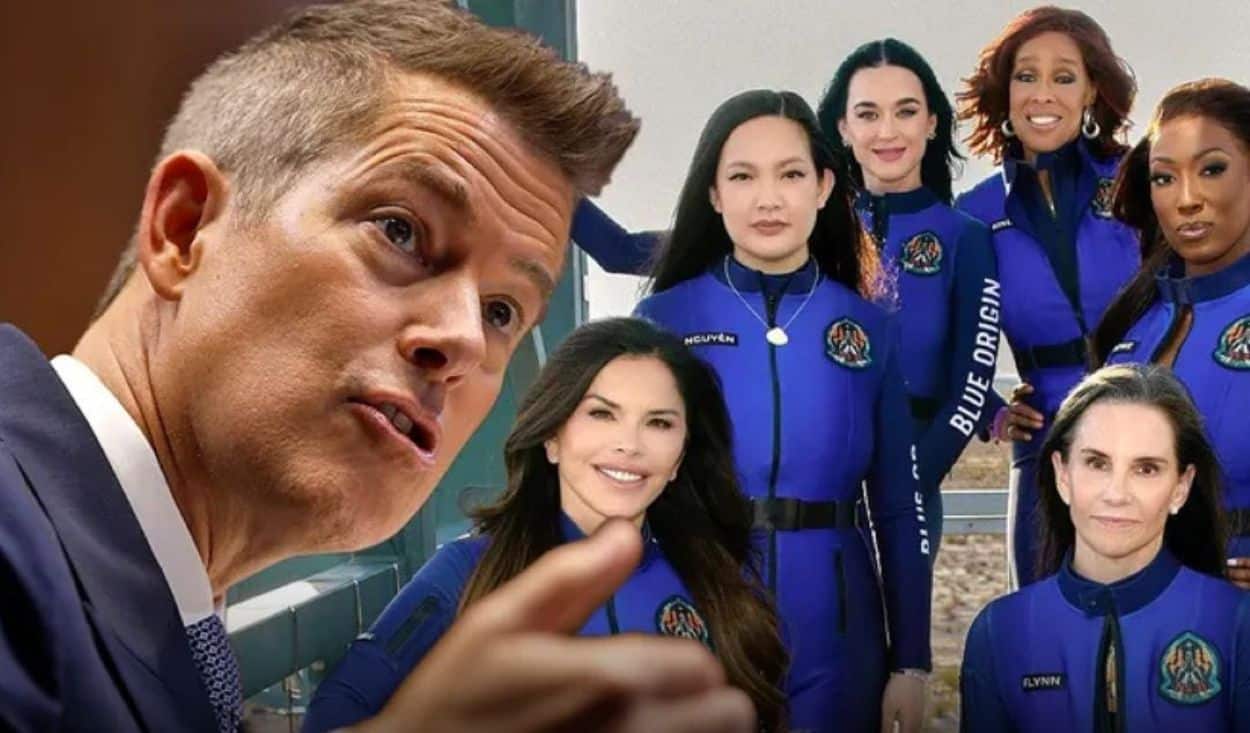The all-women Blue Origin flight, which included Katy Perry and Gayle King, has ignited a heated debate about what qualifies someone as an astronaut.
U.S. Transportation Secretary Sean Duffy questioned their status as astronauts, bringing attention to ongoing tensions regarding the definitions of space travel and the Kármán line boundary.
Blue Origin’s recent flight, reaching 68 miles (106 km), surpassed the 62.1-mile Kármán line, often cited as space’s boundary. The company calls its passengers “astronauts,” a claim disputed by Duffy, who notes they don’t meet Federal Aviation Administration (FAA) criteria requiring crew status and safety contributions at 50 miles (80 km). The FAA’s definition excludes New Shepard passengers, as the vehicle is fully automated, likening them to airline passengers rather than crew.
NEW: Transportation Secretary Sean Duffy calls out the all-female Blue Origin spaceflight, says they do not meet the criteria to be an "astronaut."
Duffy says the women are "brave and glam," but they do not meet FAA astronaut criteria.
"Crewmembers who travel into space must… pic.twitter.com/b4jMNRHWaU
— Collin Rugg (@CollinRugg) April 17, 2025The debate intensified after the 2021 flights of Richard Branson (53 miles on Virgin Galactic) and Jeff Bezos (Blue Origin), with Blue Origin emphasising the Kármán line to bolster its passengers’ astronaut credentials. However, experts like Ian Whittaker, a physicist at Nottingham Trent University, argue the Kármán line lacks scientific rigour, suggesting boundaries like the 35,000-mile plasmapause for space physics.
Olivia Munn calls out Blue Origin space trip:
“What’s the point? Is it historic that you guys are going on a ride? I think it’s a bit gluttonous. Space exploration was to further our knowledge and to help mankind. What are they gonna do up there that has made it better for us… pic.twitter.com/aaf7BzhIvE
— Pop Crave (@PopCrave) April 15, 2025Public and Legal Implications
Passengers like King, who compared the flight to Alan Shepard’s 1961 mission, faced online backlash, with critics noting unequal scrutiny compared to male space tourists. Perry described feeling “battered” by the reaction. Legally, the astronaut title could impact liability in adverse incidents, as seen in hypothetical scenarios involving past passenger William Shatner. Whittaker suggests conducting scientific research during flights could justify crew status, though Blue Origin’s brief 3-4 minutes of weightlessness limits such opportunities compared to zero-G plane flights offering 10-15 minutes.
Read: Katy Perry’s Blue Origin Space Trip: Facts, Criticism, and Conspiracy Theories
The Blue Origin flight’s astronaut controversy, spotlighting Katy Perry and Gayle King, underscores the evolving definition of space travel. As Sean Duffy and experts challenge the term’s application, the debate over the Kármán line and crew status highlights broader legal and cultural questions. The future of space tourism depends on clarifying who truly earns the astronaut title.






